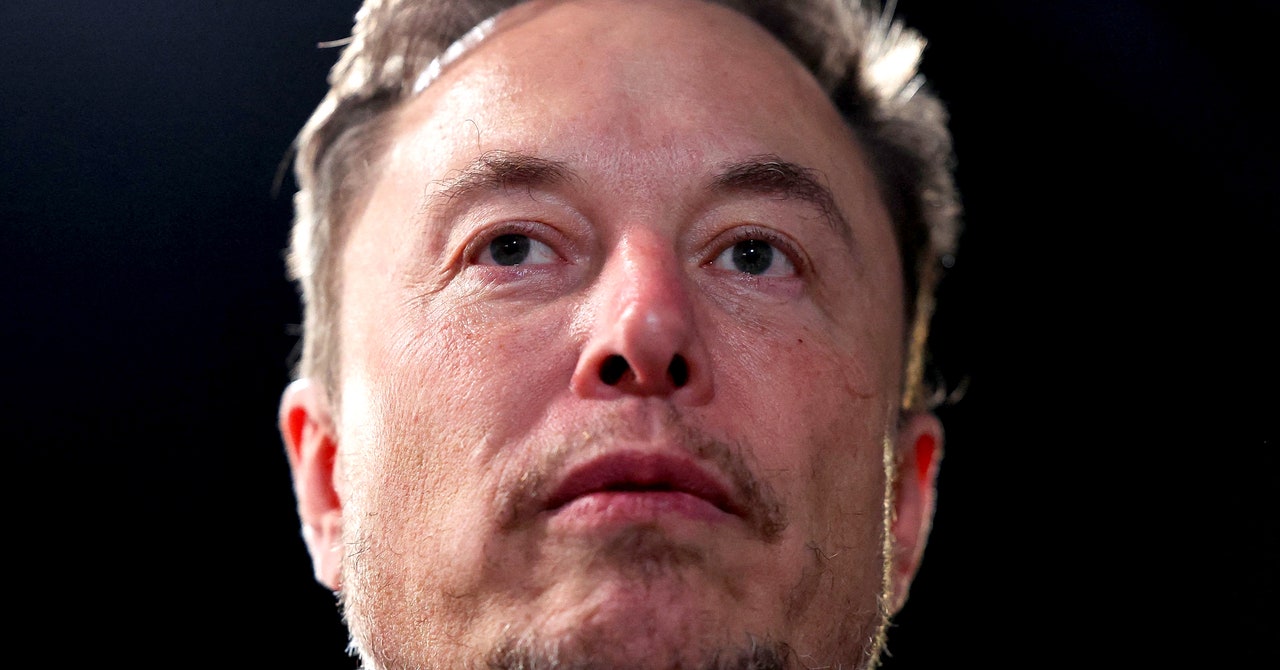Chưa có sản phẩm trong giỏ hàng.
Review sản phẩm
Elon Musk không thể giải quyết cuộc khủng hoảng của Tesla tại Trung Quốc bằng chuyến thăm kinh tế tuyệt vọng ở châu Á
Giới thiệu Elon Musk Can’t Solve Tesla’s China Crisis With His Desperate Asia Visit
Việc Elon Musk không thể giải quyết khủng hoảng của Tesla tại Trung Quốc bằng chuyến thăm tuyệt vọng tại châu Á.
Elon Musk không thể giải quyết khủng hoảng của Tesla tại Trung Quốc bằng chuyến thăm tuyệt vọng tại châu Á. Hãy đến Queen Mobile để đánh giá sản phẩm và mua ngay với chất lượng tốt nhất! #QueenMobile #ĐánhGiáSảnPhẩm #MuaNgay
Mua ngay sản phẩm tại Việt Nam:QUEEN MOBILE chuyên cung cấp điện thoại Iphone, máy tính bảng Ipad, đồng hồ Smartwatch và các phụ kiện APPLE và các giải pháp điện tử và nhà thông minh. Queen Mobile rất hân hạnh được phục vụ quý khách….
_____________________________________________________
Mua #Điện_thoại #iphone #ipad #macbook #samsung #xiaomi #poco #oppo #snapdragon giá tốt, hãy ghé [𝑸𝑼𝑬𝑬𝑵 𝑴𝑶𝑩𝑰𝑳𝑬] ✿ 149 Hòa Bình, phường Hiệp Tân, quận Tân Phú, TP HCM
✿ 402B, Hai Bà Trưng, P Tân Định, Q 1, HCM
✿ 287 đường 3/2 P 10, Q 10, HCM
Hotline (miễn phí) 19003190
Thu cũ đổi mới
Rẻ hơn hoàn tiền
Góp 0%
Thời gian làm việc: 9h – 21h.
KẾT LUẬN
Trong bức bài viết này, nói về việc Elon Musk không thể giải quyết vấn đề Tesla tại Trung Quốc thông qua chuyến thăm của mình tại châu Á. Câu chuyện xoay quanh vấn đề về việc Tesla bằng cách nào đánh thức lại sự quan tâm của người mua tại thị trường Trung Quốc, khi mà các doanh số bán hàng của hãng này tại đây đã giảm đi đáng kể. Elon Musk không chỉ đối mặt với áp lực từ giới đầu tư mà còn phải đối diện với sự cạnh tranh khốc liệt từ các hãng sản xuất ô tô địa phương.
Elon Musk will be pleased that his surprise jaunt to China on Sunday garnered many glowing headlines. The trip was undoubtedly equally a surprise to Indian prime minister Narendra Modi, who had been scheduled to offer Musk the red carpet on a long-arranged visit.
The billionaire blew off India at the last minute, citing “very heavy Tesla obligations.” Indeed, Tesla has had a tumultuous couple of weeks, with federal regulator slap-downs, halved profits, and price-cut rollouts. Yet, in a very public snub that Modi won’t quickly forget, the company CEO made time for Chinese premier Li Qiang.
And well Musk might. Tesla needs China more than China needs Tesla. After the US, China is Tesla’s second biggest market. And ominously, in the first quarter of the year, Tesla’s sales in China slipped by 4 percent in a domestic EV market that has expanded by more than 15 percent. That’s enough of a hit for any CEO to jump in a Gulfstream and fly across the Pacific for an impromptu meeting with a Chinese premier.
Globally, Tesla has lost nearly a third of its value since January, and earlier this month, Tesla’s worldwide vehicle deliveries in the first quarter fell for the first time in almost four years. As they are wont to do, Tesla investors continue to complain over repeated delays to the company’s rollout of cars with genuine driverless capabilities.
One of Tesla’s stop-gap technologies—a now heavily-discounted $8,000 add-on—is marketed as Full Self-Driving, or FSD. But, like the similarly confusingly named Autopilot feature, it still requires driver attention, and may yet still prove to be risky.
Among the deals said to have been unveiled at Sunday’s meeting with Li Qiang was a partnership granting Tesla access to a mapping license for data collection on China’s public roads by web search company Baidu.
This was a “watershed moment,” Wedbush Securities senior analyst Dan Ives said in an interview with Bloomberg Television. However, Tesla has been using Baidu for in-car mapping and navigation in China since 2020. The revised deal, in which Baidu will now also provide Tesla with its lane-level navigation system, clears one more regulatory hurdle for Tesla’s FSD in China. It does not enable Tesla to introduce driverless cars in China or anywhere else, as some media outlets have reported.
Press reports have also claimed that Musk has secured permission to transfer data collected by Tesla cars in China out of China. This is improbable, noted JL Warren Capital CEO and head of research Junheng Li, who wrote on X: “(Baidu) owns all data, and shares filtered data with Tesla. Just imagine if (Tesla) has access to real-time road data such as who went to which country’s embassy at what time for how long.” That, she stressed, would be “super national security!”
According to Reuters, Musk is still seeking final approval for the FSD software rollout in China, and Tesla still needs permission to transfer data overseas.
Li added that a rollout of even a “supervised,” data-lite version of FSD in China is “extremely unlikely.” She pointed to challenges for Tesla to support local operation of the software. Tesla still “has no (direct) access to map data in China as a foreign entity,” she wrote.
Instead, Tesla is likely using the deal extension with Baidu as an FSD workaround, with the data collected in China very much staying in China. Despite this, Tesla shares have jumped following news of the expanded Baidu collaboration.
Furthermore, Li said there’s “no strategic value” for Beijing to favor FSD when there are several more advanced Chinese alternatives. (We’ve tested them.)
“Chinese EVs are simply evolving at a far faster pace than Tesla,” agrees Shanghai-based automotive journalist and WIRED contributor Mark Andrews, who tested the driver assistance tech available on the roads in China. The US-listed trio of Xpeng, Nio, and Li Auto offer better-than-Tesla “driving assistance features” that rely heavily on lidar sensors, a technology that Musk previously dismissed, but which Tesla is now said to be testing.
Although dated in shape and lacking in the latest tech, a Tesla car is nevertheless more expensive in China than most of its rivals. Tesla recently slashed prices in China to arrest falling sales.
Musk’s flying visit to China smacked of “desperation,” says Mark Rainford, owner of the Inside China Auto channel. “(Tesla) sales are down in China—the competition has weathered the price cuts so far and (the Tesla competitors have) a seemingly endless conveyor belt of talented and beautiful products.” Rainford further warns that the “golden period for Tesla in China” is “at great risk of collapsing.”
Tesla opened its first gigafactory in Shanghai five years ago, and it is now the firm’s largest—but the automaker has been playing tech catchup in China for some time. In addition to Xpeng, Nio, and Li, there are other Chinese car companies competing with Tesla on autonomous driving, as Musk will see if he visits the Beijing Motor Show, which runs through this week.
Beijing is now arguably the world’s preeminent automotive expo, but Tesla is not exhibiting—a sign that it has little new to offer famously tech-hungry Chinese autobuyers. Pointedly, the Cybertruck is not road-legal in China, although that hasn’t stopped Tesla from displaying the rust-prone electric pickup in some of its Chinese showrooms.
Likewise, Tesla has just announced plans for a European Cybertruck tour. But, just like in China, the EV pickup cannot be sold in the EU, either—and according to Tesla’s lead on vehicle engineering, it likely never will be.
Speaking on tighter pedestrian safety regulations in the EU compared to the US, Tesla’s vice president of vehicle engineering, Lars Moravy, told Top Gear that “European regulations call for a 3.2-mm external radius on external projections. Unfortunately, it’s impossible to make a 3.2-mm radius on a 1.4-mm sheet of stainless steel.”
The “Cybertruck Odyssey” tour—as Tesla’s European X account calls it—may titillate Tesla fans, but it could prove to be about as useful as shooting a Roadster into space.



